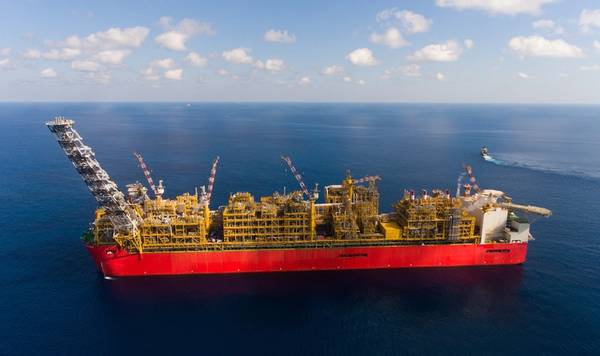
Royal Dutch Shell reported on Thursday a small drop in first quarter profit to $5.4 billion, but still easily beat forecasts, helped by stronger trading and liquefied natural gas earnings.
Shell's results outshone those of rivals Exxon Mobil, Chevron and BP which all saw sharp declines in profits in the first three months of the year as a result of lower refining margins and weaker crude and gas prices.
Shell's shares were up 2.5 percent by 0932 GMT, compared with a 0.25 percent decline for the sector's broader index .
The strong results build on a sharp rise in profits last year to $21.4 billion, their highest since 2014, which beat those of larger rival Exxon and followed deep cost cuts in the wake of the 2014 oil price downturn.
Still, cash generation, which the Anglo-Dutch company has flagged as a key measure of its growth in the past, sagged 9 percent to $8.6 billion as a result of one-off charges.
Free cash flow - cash available to pay for dividends and share buybacks - dropped to $4 billion from $16.7 billion in the previous quarter and $5.2 billion a year earlier.
Shell has targeted free cash flow generation of $25 billion-$30 billion a year between 2019 and 2021.
In a sign of confidence, Shell, the world's biggest dividend payer at $16 billion a year, accelerated its $25 billion share repurchasing scheme promised following the acquisition of BG Group in 2016. By April 29 it said it had repurchased $6.75 billion.
"The market may not yet fully appreciate the progress that Shell has made, but the resiliency of the company’s cash cycle is being demonstrated. In our view, the track record has been re-established," said Jefferies analyst Jason Gammel.
Trading boost
Net income attributable to shareholders, based on current cost of supplies (CCS) and excluding identified items, fell 2 percent to $5.43 billion in the first quarter from a year earlier.
That topped a profit forecast of $4.54 billion, according to a company-provided survey of analysts.
"Shell has made a strong start to 2019," Chief Executive Officer Ben van Beurden said in a statement.
"Our integrated value chain enabled our Downstream business to deliver robust results despite challenging market conditions."
The profit decline was a result of lower chemicals and refining margins, lower oil prices and lower tax credits, Shell said. Those were offset by stronger contributions from trading as well as increased LNG and gas prices compared with the first quarter of 2018.
Shell's Integrated Gas business saw a 65 percent rise in cash generation to $4.2 billion as LNG trading helped offset a 6 percent decline in sales volumes and lower gas prices.
BP also saw a drop in profits due to lower crude prices and refining but was cushioned by trading, which allows a company to make profit by taking advantage of price differences in different regions.
Shell said its oil and gas production in the quarter declined to 3.752 million barrels of oil equivalent from 3.788 million boed in the fourth quarter of 2018.
Its dividend was unchanged at $0.47 per share.
(Reporting by Ron Bousso; editing by Jason Neely and Susan Fenton)



